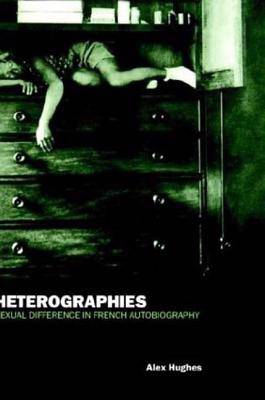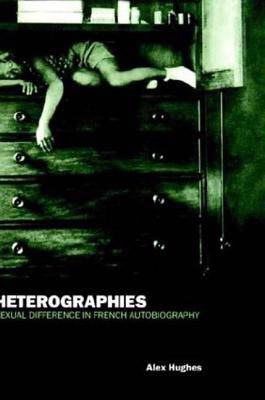
Je cadeautjes zeker op tijd in huis hebben voor de feestdagen? Kom langs in onze winkels en vind het perfecte geschenk!
- Afhalen na 1 uur in een winkel met voorraad
- Gratis thuislevering in België vanaf € 30
- Ruim aanbod met 7 miljoen producten
Je cadeautjes zeker op tijd in huis hebben voor de feestdagen? Kom langs in onze winkels en vind het perfecte geschenk!
- Afhalen na 1 uur in een winkel met voorraad
- Gratis thuislevering in België vanaf € 30
- Ruim aanbod met 7 miljoen producten
€ 209,95
+ 419 punten
Omschrijving
Within the domain of French literary analysis, gender criticism has until now focused primarily on women's writing and has drawn largely on the writings of French feminist theorists, even though male-authored texts provide an equally revealing window through which to analyze gender. Except by mainly male critics working predominantly in the field of gay and queer studies, the issue of how 'maleness' informs the construction of the self and the creative act more broadly has been virtually ignored. Further, even though much more work has been done on women, it can be argued that the construction of 'femaleness' is most profitably illuminated by an approach that allows for a comparison between the sexes. This book starts with the premise that sex and gender are fundamental components of the autobiographical writing of both sexes. This is demonstrated through close readings of works by a number of twentieth-century authors who are paired, one male with one female. In tackling, amongst other things, colonial and postcolonial writing, Aids writing, the question of photography and fetishism, queer politics and culture in writings by Sartre, Beauvoir, Gide, Duras, Guibert, Cardinal, Leduc and Doubrovsky, this book provides an excellent model for analyzing gender and the autobiographical act more broadly.Winner of the R. H. Gapper Prize 2000
Specificaties
Betrokkenen
- Auteur(s):
- Uitgeverij:
Inhoud
- Aantal bladzijden:
- 224
- Taal:
- Engels
Eigenschappen
- Productcode (EAN):
- 9781859733202
- Verschijningsdatum:
- 1/12/1999
- Uitvoering:
- Hardcover
- Formaat:
- Genaaid
- Afmetingen:
- 163 mm x 241 mm
- Gewicht:
- 467 g

Alleen bij Standaard Boekhandel
+ 419 punten op je klantenkaart van Standaard Boekhandel
Beoordelingen
We publiceren alleen reviews die voldoen aan de voorwaarden voor reviews. Bekijk onze voorwaarden voor reviews.









